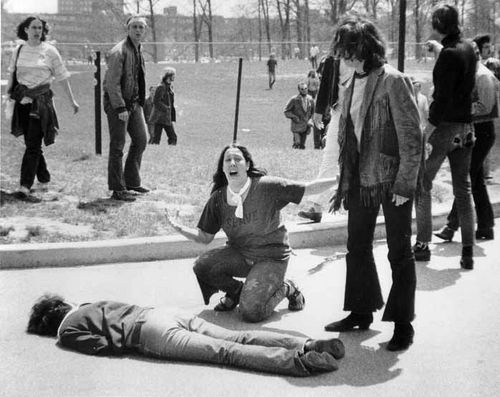There’s no better proof that, while the Soviet Union may have disappeared, its malevolent ideals still live on, than to observe that neither the word “socialist” nor “Marxist” has fallen into ill-repute, or become an all-purpose insult like “Nazi.” This is partly due to academe’s unrequited lust for the Soviet system, and the continued presence of Soviet-bred sleeper agents — what the Russians called their “illegals” program — within the larger American society. Nearly two decades after the end of the Cold War, we still haven’t fully grasped the extent of the Marxist-Leninist evil — nor how it continues to this day.

Which is why this piece in the indispensable City Journal by Claire Berlinski is today’s must-read:
In the world’s collective consciousness, the word “Nazi” is synonymous with evil. It is widely understood that the Nazis’ ideology–nationalism, anti-Semitism, the autarkic ethnic state, the Führer principle–led directly to the furnaces of Auschwitz. It is not nearly as well understood that Communism led just as inexorably, everywhere on the globe where it was applied, to starvation, torture, and slave-labor camps. Nor is it widely acknowledged that Communism was responsible for the deaths of some 150 million human beings during the twentieth century. The world remains inexplicably indifferent and uncurious about the deadliest ideology in history.
For evidence of this indifference, consider the unread Soviet archives. Pavel Stroilov, a Russian exile in London, has on his computer 50,000 unpublished, untranslated, top-secret Kremlin documents, mostly dating from the close of the Cold War. He stole them in 2003 and fled Russia. Within living memory, they would have been worth millions to the CIA; they surely tell a story about Communism and its collapse that the world needs to know. Yet he can’t get anyone to house them in a reputable library, publish them, or fund their translation. In fact, he can’t get anyone to take much interest in them at all.
The documents may shed important light on the Soviet influence in the creation of the European Union, which is being torn apart by (as the structural Marxists would say) its “internal contradictions” —
… Kenneth Coates, who from 1989 to 1998 was a British member of the European Parliament, approached Zagladin on January 9, 1990, to discuss what amounted to a gradual merger of the European Parliament and the Supreme Soviet. Coates, says Zagladin, explained that “creating an infrastructure of cooperation between the two parliament[s] would help . . . to isolate the rightists in the European Parliament (and in Europe), those who are interested in the USSR’s collapse.” Coates served as chair of the European Parliament’s Subcommittee on Human Rights from 1992 to 1994. How did it come to pass that Europe was taking advice about human rights from a man who had apparently wished to “isolate” those interested in the USSR’s collapse and sought to extend Soviet influence in Europe?
Perhaps it doesn’t surprise you to read that prominent European politicians held these views. But why doesn’t it? It is impossible to imagine that figures who had enjoyed such close ties to the Nazi Party–or, for that matter, to the Ku Klux Klan or to South Africa’s apartheid regime–would enjoy top positions in Europe today. The rules are different, apparently, for Communist fellow travelers. “We now have the EU unelected socialist party running Europe,” Stroilov said to me. “Bet the KGB can’t believe it.”

After noting that that the struggle to translate and publish these papers is still ongoing, Berlinski concludes:
No one talks much about the victims of Communism. No one erects memorials to the throngs of people murdered by the Soviet state. (In his widely ignored book, A Century of Violence in Soviet Russia, Alexander Yakovlev, the architect of perestroika under Gorbachev, puts the number at 30 to 35 million.)
Indeed, many still subscribe to the essential tenets of Communist ideology. Politicians, academics, students, even the occasional autodidact taxi driver still stand opposed to private property. Many remain enthralled by schemes for central economic planning. Stalin, according to polls, is one of Russia’s most popular historical figures. No small number of young people in Istanbul, where I live, proudly describe themselves as Communists; I have met such people around the world, from Seattle to Calcutta.

We rightly insisted upon total denazification; we rightly excoriate those who now attempt to revive the Nazis’ ideology. But the world exhibits a perilous failure to acknowledge the monstrous history of Communism. These documents should be translated. They should be housed in a reputable library, properly cataloged, and carefully assessed by scholars. Above all, they should be well-known to a public that seems to have forgotten what the Soviet Union was really about. If they contain what Stroilov and Bukovsky say–and all the evidence I’ve seen suggests that they do–this is the obligation of anyone who gives a damn about history, foreign policy, and the scores of millions dead.
Be sure to read the whole thing, then look around ask yourself: does anybody give a damn? Or did the bad guys win after all?
COMMENTS
Please let us know if you're having issues with commenting.